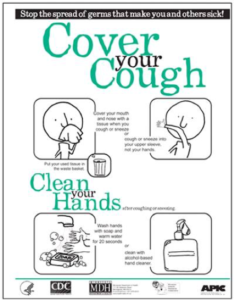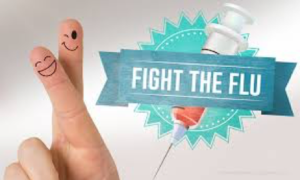Blog
Fighting the Flu this Season
- November 8, 2018
- Posted by: Rachel Quattrin
- Category: Prevention Teen Tween Young Adult

Fever, chills, muscle aches, cough, congestion, runny nose, headaches, and fatigue – sounds, awful, right? These are all symptoms associated with the flu. In the US, between 9.2 million and 35.6 million cases of flu arise each year. Flu season typically runs from October through May, with the peak season occurring between December to February. Unless you plan on locking yourself away from everyone and everything for the entire season, you cannot create a foolproof plan to prevent the flu. You can, however, employ strategies to maintain your health and reduce your risk of getting sick.
What is the single most important step in preventing the flu?
Obtaining a yearly flu vaccine is the most important preventative action against the flu. Flu vaccines protect against the three or four viruses that research suggests will be the most common in any given flu season. The vaccine can reduce flu illnesses, doctors’ visits, and being sidelined from fun and memorable activities. The Centers for Disease Control and Prevention has data to suggest that even if someone does still get the flu, their infection will be milder and shorter lived than if they were not vaccinated.
How does the flu spread from person to person?
To best understand how to protect yourself from the flu, it is important to understand how the virus spreads from person to person. There are four primary methods of transmission:
- Airborne respiratory droplets (coughs or sneezes).
- Skin-to-skin contact with someone who has the flu (handshakes or hugs).
- Saliva (kissing or shared drinks)
- Touching a contaminated surface (doorknob or shopping cart)
What measures should I take to avoid catching the flu?
Practicing good health habits can act as a line of defense against the flu. Following a few simple steps can minimize the spread of flu viruses:
- Avoid being around people who are ill and stay away from healthy people if you are feeling sick
- If you have symptoms of the flu, stay home from school or work for at least 24 hours after your fever is gone
- Use a tissue to cover your mouth or use your elbow (not your hands!), when sneezing or coughing.
- Wash hands regularly with soap and warm water, or use an alcohol-based hand rub.
- Avoid touching your eyes, nose, and mouth without first washing your hands to ensure they are germ-free.
- Constantly clean surfaces that people come into contact with at work, school, or home.
- Maintain your immune system to protect your body from infection

How do I maintain my immune system?
Implement healthy living strategies, such as:
- Consume a fruit and vegetable rich diet
- Exercise frequently
- Aim for a healthy BMI
- Sleep for 7–9 hours each night
- Reduce stress
- Get a flu vaccine!
Fall and Winter can be a time to enjoy cool weather activities and holidays. Without good strategies, it can also be a time of tissues, fevers and body aches. Protect yourself from the flu by getting vaccinated and practicing good health habits – you’ll be glad you did!
Resources:
https://www.cdc.gov/flu/consumer/symptoms.htm
https://www.mayoclinic.org/diseases-conditions/flu/symptoms-causes/syc-20351719
https://www.medicalnewstoday.com/articles/321005.php
This post was written for Healthy Young NV by Logan, a Youth Advisory Council Member.




